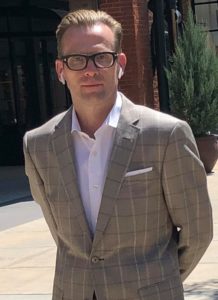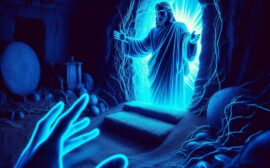By: Justin Angelos, M.A., Contributor | April 13, 2025
One of the ways that theology aids science is that it gives or provides a conceptual analysis for science to flourish. [1] Theology offers a conceptual framework so that science can thrive. Science is not something natural, science is an invented cultural institution. Dr. Craig argues that Science was developed in Western civilization due to the unique contribution of Christianity. If naturalism is true, then life itself has no ultimate value; if God exists, then people have intrinsic worth and are not to be treated as a means to an end. If naturalism is true, then life is truly pointless. [2]
Physicist Lawrence Krause rejects the idea that theology provides a framework for science to flourish. Krause argues that physics has proven that God is not needed as an explanation for the universe. Krause argues that morality is empty without science and that one day, science will eventually bury the gods of all religions. Therefore, theology and philosophy do not aid in science, it was rational thought that aided and continues to aid science and allows science to flourish. [3]
Krause really has not given any good reasons or evidence that shows theology does not provide a conceptual analysis for science to flourish. Krause really just stated his claim but did nothing to provide any evidential support for his claim. All Krause has done is state that God is unnecessary. Krause also does not give any strong arguments that provide good reasons for accepting that God is not necessary or that God does not exist. Kraus states in his debate with Craig, “You go study deep theological issues, and we will go study how the universe works.” [4] Showing how something works does not show why something is there or exists.
Science Was Birthed out of Christian Thought, Not Darwinian Evolution
It was Christianity and Christian thought that developed science, early Christians did not see science and God as being at odds with each other. In the last thousand years, God and science seemed to have always gone together. Early Christians wanted to answer how God governs the universe. [5] Science was not used to try and disprove theism, Christian theism literally invented science and scientific inquiry. Atheists cannot divorce theology from science. They can try, but they cannot erase the fact Christian theology gave birth to science, science and theology have very important mutual interests.[6]
Robert John Russell argued that God acts directly at the quantum level to sustain the development of elementary processes. [7] Krause argues that God is not necessary as an explanation for anything, and physics proves that the universe does not need an explanation, and it is a good thing because he argues, it means we still have something to learn.[8] Craig argues that theology provides a conceptual analysis and framework for science, theology also provides a moral foundation for science. What scientific theory tells scientists that he or she should be honest in their conclusions? Or what scientific theory defines human value? A scientist whose guiding principle is a transcendent moral standard is guided by something outside of themselves.
The Real Conflict Is Theism and Naturalism, Not Theism and Science
There is not a battle between Science and Theology at the Popular level and what is seen at the academic level. Craig mentions that on the academic level, there is tremendous openness and dialogue between scientists and theologians. In fact, the John Templeton Foundation is pouring millions of dollars into funding this kind of interdisciplinary dialogue. Both Oxford University and Cambridge University have a flourishing dialogue in Science and Theology. [9] Most people would never know this just from reading the popular-level works of Richard Dawkins and Lawrence Krause. Craig mentions these kinds of popular-level atheists perpetuate the myth that science and theology are at each other’s throats. And this is just not at all reflective of what is going on in the world of academics.[10]
Based on Craig’s view of the relationship between theology and science, there is a false portrayal of science and theology at the popular level. The view that science and theology are at odds with each other, is what is promoted on the internet by popular atheists like Sam Harris, and Richard Dawkins. It appears the atheist at the popular level, forget that science in the western world is the result of Christian thought, and did not originate from Darwinian evolution.[11]
Theology can explain things that science is not equipped to answer moral issues. Krause argues that it is not better morality that has made the world better; it is rational thought. This is not a question that science can answer; it is not a scientific question. It is a philosophical one, and it is a theological issue. Science does not deal with morality, nor can science answer the question, “If God is all good, then why is there evil in the world?” this is a question for philosophy and theology.
The real conflict between science and theology began in the early nineteenth century due to the developing fundamentalist movement that was taking place. [12] Craig argues there is an overlap between science and theology. Craig also argues that we cannot determine the age of the earth, the date that humanity began, based on the reading of Genesis 1-11; this is where we need to turn to modern science, to tell us the age of the earth and humanity. Craig disagrees with Gould about Science and religion not overlapping magisteria. For Example, Genesis’s teaching on creation and the beginning of the universe by God should be affirmed.[13] This is an area where science and theology overlap.
Science confirms the theological teaching of the creation account in Genesis 1-11, so here is an example of the relationship between theology and science and how the two overlap each other. Craig observes that Christianity does not view the world as being divine and or indwelt by spirits; instead, Christianity views the world as being created by a transcendent creator. [14] There is another area in which Craig argues how science and theology overlap and their relationship to each other. Take the laws of logic, the orderly nature of the external world, and the objectivity of moral values that are used in science. These things cannot be tested in a laboratory by science. Also, the reliability of our cognitive faculties in knowing the world, science could not exist without these assumptions and again these assumptions cannot be proven through science. [15]
Science cannot prove or test the laws of logic and rationality, science cannot test moral issues like abortion, science cannot say things like “abortion is a moral evil.” Science can only tell us what happens during the process. These are philosophical issues that can only be answered by proper religious thought.
Craig argues that science can falsify and verify religious claims. When religions make certain claims about the world, they intersect with the domain of science, which science can either verify or falsify. [16] Craig offers an example of this, “ancient Indian’s believed that the sky rested on the back of a great turtle.” [17] This is an area where science can falsify this religious claim about the world and the sky resting on the back of a turtle.
Another example is in Eastern religions that claim the world is divine and the universe is eternal, science has shown through the discoveries of the expansion of the universe, that time, space, and matter came into existence a finite time ago. [18] Almost everyone (scientists) believes that the universe was created, and that space, time, and matter were created at the Big Bang. This scientific falsification shows that the pantheistic religions are wrong in their claims about the world and creation.
Craig argues that in the Judeo-Christian worldview, one of those doctrines is that God created the universe out of nothing ex-nihilo a finite time ago, and this is stated in Genesis 1:1, “In the beginning God created the heavens and the earth.” The theological claim is that the universe had a beginning. Even though this claim was rejected for many years, in 1929 with the discovery of the expansion of the universe, it was affirmed. The Biblical claim that the universe had a beginning was verified by science.[19] This is a great example of the relationship between theology and science, it is impossible to divorce the two disciplines, even though many atheists have tried. “Scientist has scaled the mountains of ignorance; he is about to conquer the highest peak, as he pulls himself over final rock, he is greeted by a band of theologians who have been sitting there for centuries.”[20]
Notes
“What Is the Relation between Science and Religion: Reasonable Faith.” Popular Writings | Reasonable Faith. Accessed November 22, 2022. William Lane Craig
“William Lane Craig vs. Lawrence Krauss – Life, the Universe, and Nothing.” YouTube. YouTube, October 21, 2018. Last modified October 21, 2018. Accessed November 22,
Murphy, Nancey. “Science and Theology: Mapping the Relationship.” Fuller Studio. Last modified January 30, 2018. Accessed November 22, 2022. https://fullerstudio.fuller.edu/science-theology-mapping-relationship/.
Stanford Encyclopedia of Philosophy. Stanford University, n.d. Accessed November 22, 2022. https://plato.stanford.edu/.
[1] William Lane Craig, vs Lawrence Krause- life, the universe and nothing October 21st, 2018
[2] Ibid, Reasonable Faith
[3] Craig, Krause, The Universe out of Nothing
[4] Craig, Krause, Universe out of nothing
[5] Murphy, Nancy, “Science, Theology: Mapping the relationship.” January 30th, 2018, Fuller.edu
[6] Murphy
[7] Murphy, Science Theology
[8] Craig, Krause Universe out of Nothing
[9] Craig, Krause,
[10] Craig, Krause.
[11] Criag, Krause
[12] Craig, Krause
[13] Craig, Krause
[14] “What Is the Relation between Science and Religion: Reasonable Faith.” Popular Writings | Reasonable Faith. Accessed November 22, 2022. William Lane Craig
[15] Craig, Krause
[16] Craig, Krause
[17] Craig, Krause
[18] Craig, Krause
[19] Craig, Krause
[20] Craig, Reasonable Faith
About the Author

Seattle native Justin Angelos brings a passion for evangelism and discipleship along with theology and apologetics. He has studied at Biola University and Liberty University and recently earned a Master of Arts in Apologetics from Biola University. Justin focuses on providing help for those who suffer from emotional and anxiety issues. He currently resides in Salt Lake City, Utah.





